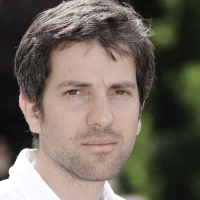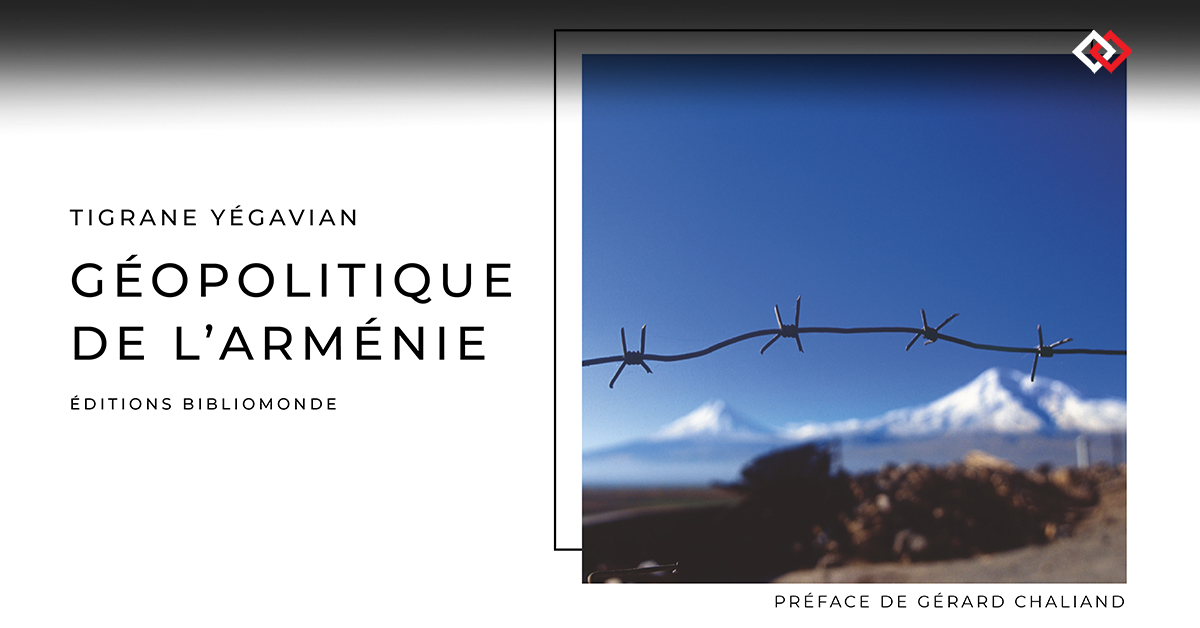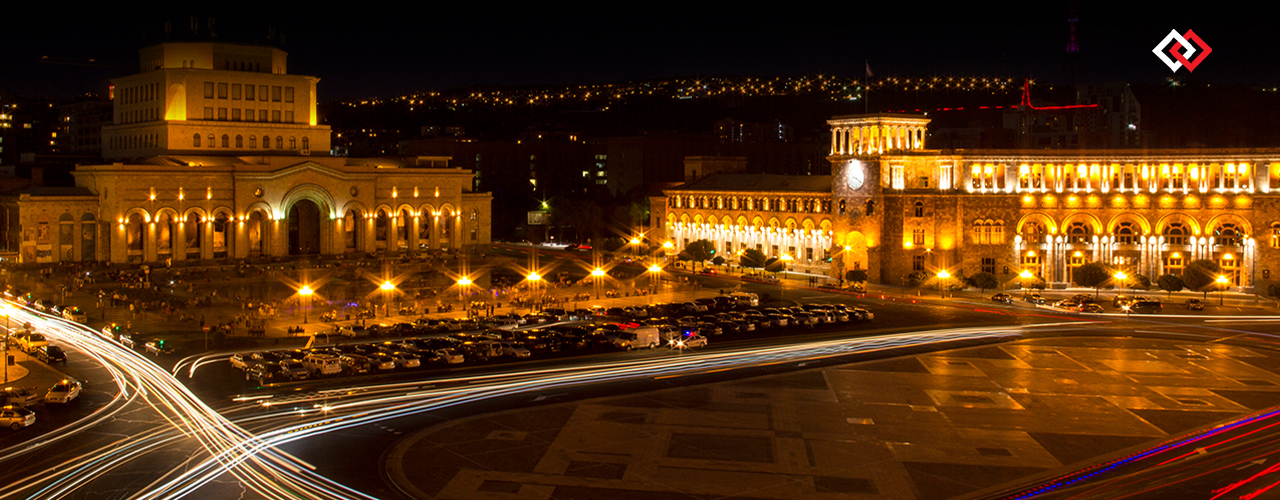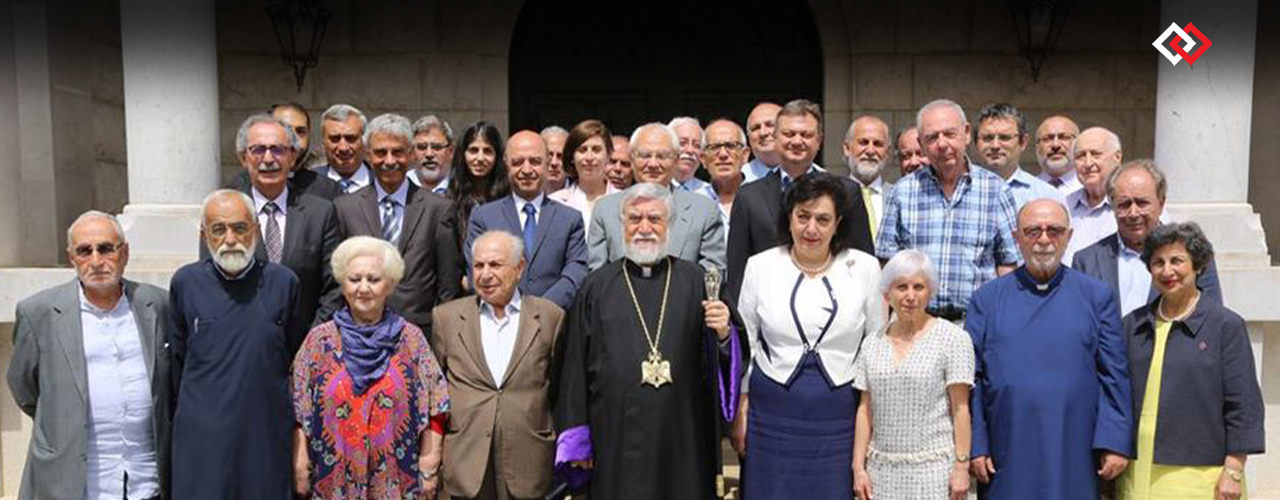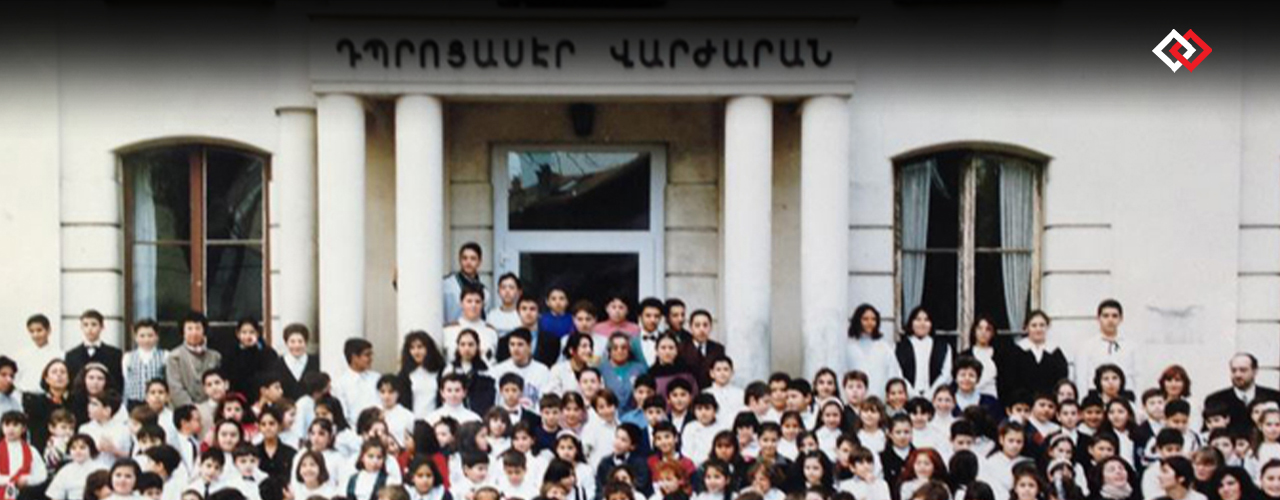In 2020, a disastrous war caused the Armenians to lose part of the enclave of Nagorno-Karabakh, as well as the glacis surrounding it. If it has been possible to avoid the worst, Russia’s attitude towards its Armenian ally and protégé has not lived up to hoped-for expectations.
A multi-millennial nation yet without a recent state tradition, Armenia must today analyze the reasons for such a disaster, learn to survive in a hostile geopolitical environment and reinvent its relationship with its large and influential Diaspora.
Tigrane Yegavian, a researcher at the French Center for Intelligence Research (CF2R) tackles the above issues in his new book “Géopolitique de l’Arménie”, which is above all intended to be educational and forward-looking.
Below the interview Tigran Yegavian to ENDERI (Entreprise Défense & Relations Internationales):
At the end of September 2020, with military support from Turkey, Azerbaijan, an authoritarian regime in the South Caucasus, launched a violent offensive against the self-proclaimed republic of Nagorno-Karabakh. This conflict resulted in 6,000 deaths – mostly Armenians – and ended in the defeat of the Artsakh, who had neglected their defense for several years in the face of an Azerbaijan that had constantly reinforced its army with the aim of this “reconquest”.
Why did you want to demonstrate in your book?
The 44-day war that was lost by the Armenians in the autumn of 2020 revealed the extent of the discrepancy between the representation of reality and the evolution of power relations, as well as the regional and global geopolitical situation. For Armenians, such a shock, heavy with human, territorial and moral consequences, required a critical examination. This “critical” geopolitics is a kind of response to this defeat in the face of realism, a current in international relations to which I am close.
My purpose was to demonstrate that Armenia is a country that can claim a unique historical and civilizational depth, but that in the absence of a state culture also bears a heavy responsibility for its misfortune.
Where does this obsession of the Turks and Azeris against an Armenia that represents no danger for them come from?
Turks and Azeris, united by a linguistic community, or even a community of destiny, consider the small, mutilated and bloodless Armenia as a kind of incongruity. For them, the danger is not so much physical – since in no case has Armenia officially questioned the borders inherited from the Treaty of Kars of 1921 – as psychological, even existential. The fact that an Armenia, however small, still exists 107 years after the genocide, is a kind of time bomb for Turkey, which has built itself as a nation-state on the corpse of the Christians of Anatolia.
The international recognition of the genocide supported by Armenia is a pebble in Ankara’s shoe.
If Armenian, Greek and Assyro-Chaldean historians repeatedly remind us that their civilizational melting pot is located in Anatolia and Upper Mesopotamia, this feeds the hateful and bellicose discourse of a Turkey still haunted by the Sevres syndrome, that is to say, the fear of its dismemberment acted by the Sèvres treaty of 1920 to which the Armenians are sentimentally attached since it drew the contours of a chimerical “free and reunified Armenia”.
As for the Azeris, the Russian historian Alexander Bennigsen, a specialist in Soviet Islam, noted that the hostility of the Azeris is the basis of their nationalism, while the Russians occupy only second place in the ranks of “hated foreigners. This hatred is perhaps commensurate with the discomfort that the Azeris feel in forging their identity, which is split between several antagonistic reference systems: Islam, but Shiite, changes of alphabet three times in a century (Arabic-Persian, Cyrillic, then Latin), Turkish language, but cut off from the Ottoman space and a recent history integrated into the Russian-Soviet world.
All this contrasts with the Armenian civilizational referent deeply rooted in its language, its faith and its original alphabet. Given that the Azeri national consciousness remains confused, the only unifying Azeri narrative is based on hatred of Armenians, a hatred nourished by the trauma caused by the loss of nearly 15 per cent of the country’s surface area in the space of two years (1992-94).
How are the current Armenian political elites responsible for the defeat against Azerbaijan? Have they learned the lessons from it?
They bear a very heavy political responsibility for having “frozen” a conflict with an untenable status quo. Armenia missed the historic opportunity to make concessions when Azerbaijan was on its knees in the aftermath of the 1994 cease-fire and a peace treaty was possible. The elite that took power in 1998 had pushed Armenian President Levon Ter Petrossian to resign because he favoured an OSCE-brokered solution based on mutual concessions. Insufficient guarantee for the security of Artsakh Armenians.
Over the past 30 years, the balance of power has shifted considerably in favor of Azerbaijan. In addition to the economic differential between this hydrocarbon-rich rentier country and Azerbaijan, there is also a demographic imbalance that weighs heavily on Karabakh. In 30 years the Armenian leadership has not repopulated Artsakh, while Armenia has literally emptied itself of its population (1.5 million people have left since independence). The staggering contempt of the Armenian leaders for the general interest, the notion of state and citizenship, the weak participation of the diaspora in the life of the city… have considerably weakened this bloodless country, which cannot allow itself the luxury of being divided.
Why has the international community been so passive in the face of the war unleashed by Baku and the abuses observed? And why does it persist in not reacting despite Azerbaijan’s continued provocations and aggressions?
Because in international law the defense of territorial integrity has taken precedence over the right to self-determination of peoples. The Kosovar precedent has passed by. Above all, Armenia was very isolated diplomatically, unlike Azerbaijan, which had cleverly advanced its pawns in several multilateral bodies (UN, NATO, Council of Europe…). The West saw in this war an opportunity to weaken Russia in its own backyard and therefore refrained from supporting the Armenians.
The European Union thought that by financing economic recovery programs in Armenia it would be able to turn a blind eye to its complacency towards the racist and expansionist policy of Azerbaijan, which has made Armenophobia a state doctrine. As for the violation of Armenian territory, Brussels and NATO already pay little attention to the violations of Greek air and sea space by Turkish forces, so how can they be moved by the attack on Armenia by its neighbor, especially since it is not part of any Western collective security organization?
Has France’s attitude been up to the standard of our country’s diplomatic tradition and ties of friendship with Armenia and its traditional role of protecting the Christians of the East? How is it perceived locally?
We have been treated to a repetition of the “Macronian at the same time” during the war. The clear and courageous declarations of the Head of State on the presence of jihadist mercenaries on the side of the Turco-Azeris and the designation of the aggressor were counterbalanced by the Turcophile and inaudible policy of the Quai d’Orsay which offered its humanitarian services to both sides.
Armenians do not understand how a dear and friendly country like France, which never misses an opportunity to exalt this friendship, does not assist them when they are in danger. It is forgotten that friendship, feelings and culture have no bearing on international relations… France has the duty to think of its interests, but not at the expense of its principles. However, it has to be said that it has trampled on them in Armenia and Karabagh, without gaining much in return.
In your opinion, is the recent conflict and the current situation part of a war of civilization, Eastern Christians against conquering Islam?
This is at least the reading that the candidate Eric Zemmour proposes! The question of Karabagh remains above all that of the right to self-determination of a population in danger that cannot live in security under the Azeri flag. The civilizational dimension tends to play a more prominent role as the Azeris have demonstrated their ability to annihilate any trace of the multi-millennial presence of Armenian culture. The razing of the medieval cemetery of Jugha in Nakhichevan in the late 1990s and early 2000s was a signal that UNESCO, sensitive to caviar diplomacy, failed to take.
While Azerbaijan is fighting political Islam on its territory, it is not shy about exploiting the religious cord to stir up hatred of Armenians.
Other actors have been more or less directly involved in the conflict or its resolution: Iran, Israel, India, Pakistan. How do you analyze their game?
The military and strategic alliance between Pakistan, Turkey and Azerbaijan is much more effective and real than the Armenian-Indian partnership, although the latter is becoming stronger. Pakistan does not even recognize Armenia’s sovereignty within its internationally recognized borders!
Israel, for its part, has bet on Azerbaijan for pragmatic reasons: geostrategic convergences, oil supply in exchange for the sale of drones and new generation military equipment, espionage against Iran, cultural diplomacy with the presence of a large Jewish community in Baku and the north… these cement this partnership which continues to grow stronger.
Why did Yerevan never recognize Artsakh? This is the reason why Armenia did not intervene militarily in support of the Karabakhis?
A recognition by Yerevan of Artsakh would have no international impact, it would contribute to undermine the process set up by the OSCE Minsk Group. Yerevan has so far been content to recognize Artsakh de facto, if not de jure.
About the Armenian army did not engage its forces against the Turco-Azeris and remained in barracks (in Armenia) throughout the 44-day war. According to Russian defense analyst Ruslan Pukhov, this “decision of Yerevan not to enter the war” was the main reason for the defeat. The Armenian forces along the entire Karabagh defense line (minus the south) and Armenia proper did not take any counteroffensive measures to distract the Azeri army from their main direction (south).
There were systematic large-scale attempts to undermine the combat readiness of the Armenian army before and during the war. The most blatant example of this was the purchase in May 2020 (four months before the war began) of four SU-30M fighter jets from Russia, which were delivered without missiles and never took off during the war. Shortly after the devastating “Four Day War” in April 2016, the Armenian government rejected an Israeli offer to purchase drones and establish a factory to produce drones and associated munitions.
Not a single ammunition depot, road or bridge was destroyed during the war by the retreating Armenian forces. And in what may seem like the result of military incompetence, about two-thirds of Artsakh’s air defense systems (including mobile stations) were destroyed within hours of the invasion. More embarrassingly, a Russian-made S-300 surface-to-air missile system was destroyed on the fourth day of the war in Armenia itself (another was destroyed in mid-October). The remaining Artsakh-Armenian air defense system, under joint Russian-Armenian command since 2016, has allowed Azeri warplanes and drones to control the airspace over Nagorno-Karabakh, and even to launch attacks into Armenia.
One thing is certain, the non-intervention of the Armenian army (apart from conscripts doing their military service in Karabakh) during the war and the non-deployment of Iskander missiles remains one of the best-kept mysteries of this conflict, as do the circumstances of the fall of Shushi. The other is the game of the Armenian elites, who obviously lied to the population about the imminence of a lost war.
What game is Russia playing, which finally intervened only after the Armenian defeat had been consummated? Why did the CSTO member countries refuse to support Armenia despite its appeals?
It is difficult to know how much Russia was aware of the preparations for this conflict, but it knew it was inevitable.
The ceasefire of 9 November 2020 is similar to an implementation of the Lavrov plan (only worse), since it did not include the cessation of the strategic city of Shushi and other territories of the former autonomous region of Karabagh. The Russians intervened in extremis to save Armenian Karabakh so that they could keep a lever of pressure on Azerbaijan. This is why Armenia’s Karabakh is once again a Russian protectorate, at least as long as Russian peacekeepers are stationed there. It remains to be seen what the red line is for Moscow, which has to deal with Turkish entryism in a region it considers to be its precarious one.
The CSTO is above all a political organization and is subservient to Moscow, even if most of its members make no secret of their pro-Baku sympathies, as do Belarus and Kazakhstan. It is surprising to see that if the CSTO did not move to intervene on the side of Armenia, it was not long before it came to the aid of Kazakhstan to “restore order” there.
Interview by Éric Denécé
A graduate of Sciences Po Paris and INALCO, Tigrane Yégavian is a researcher at the Centre Français de Recherche sur le Renseignement (CF2R) s. He is a member of the editorial board of the geopolitical journal Conflits. He is a contributor to several media and journals. Tigrane Yégavian has notably published:
– Armenia in the Shadow of the Sacred Mountain (Nevicata, 2015),
– Minorities of the East, the forgotten of History (Le Rocher, 2019)
January 2022
France

